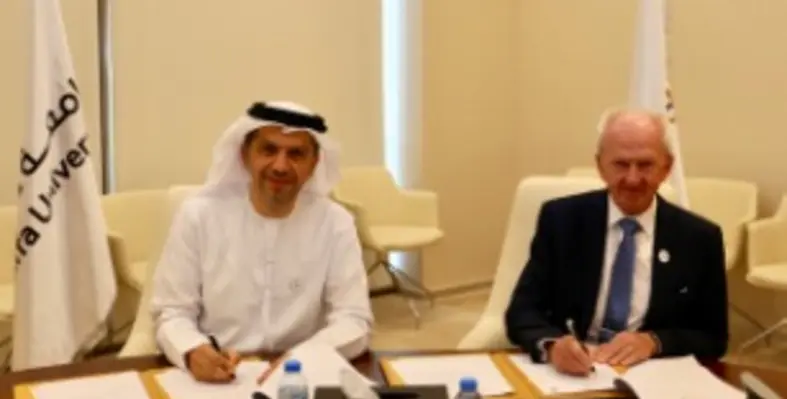The Federal Authority for Nuclear Regulation (FANR) and Khalifa University of Science and Technology (KU) have signed a collaborative research agreement to advance nuclear safety research and educate the UAE?s next-generation nuclear energy professionals
Under the terms of the agreement, FANR and KU will continue their joint work on the advanced thermal-hydraulic test loop for accident simulation project phase 2 (ATLAS-2), an international project jointly organised by the Organisation for Economic Co-operation and Development (OECD) and the Nuclear Energy Agency (NEA).
The ATLAS-2 project focuses on addressing thermal-hydraulic safety and accident management issues relevant for APR1400 reactor types. APR 1400 is a Generation III pressurised water type developed by the South Koreans.
A variant of the APR1400 reactor is employed at the UAE?s Barakah Nuclear Energy Plant and this collaborative agreement is designed to familiarise UAE students and researchers with the reactor and build local human capacities in nuclear safety through intensive research activities.
Christer Viktorsson, director general of FANR, said, ?Through this research agreement, Emirati students and researchers will learn about the critical safety features of nuclear systems utilizing various coding systems, including how to generate and modify plant inputs and study test results. Likewise, the training material produced by our work on the ATLAS-2 project will serve as a valuable resource to post-graduate students and researchers for years to come.?
Dr Arif Sultan Al Hammadi, executive vice-president at Khalifa University of Science and Technology, commented, ?This collaboration is in line with Abu Dhabi Economic Vision 2030, which emphasises the importance of sustainability of energy and water. It also concurs with Khalifa University?s mandate which includes education, research and advancement of knowledge.?
Going forward, FANR and Khalifa University will prepare to present their collective research findings on one of the relevant tests at the upcoming ATLAS-2 Project Review Meeting in October 2018, which will take place in South Korea. The project is supported by the safety organisations and industry in Korea, Belgium, Czech Republic, China, France, Germany, Spain, Switzerland, the UAE and the USA.









